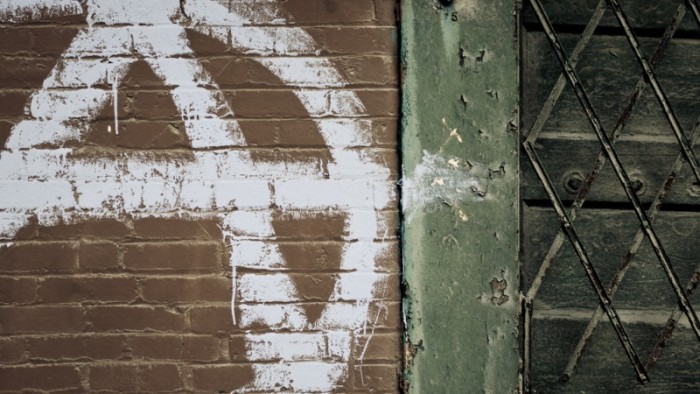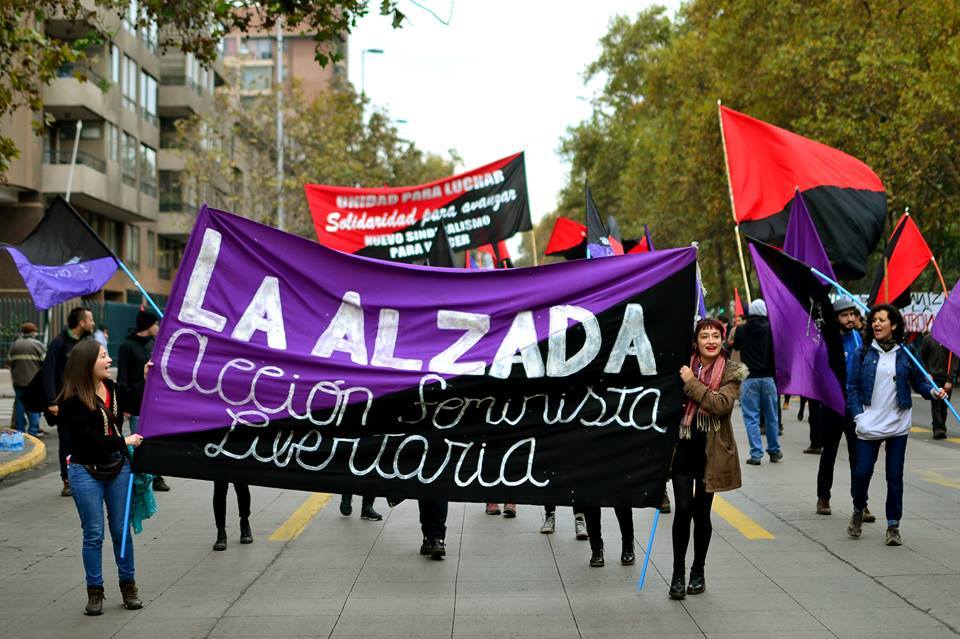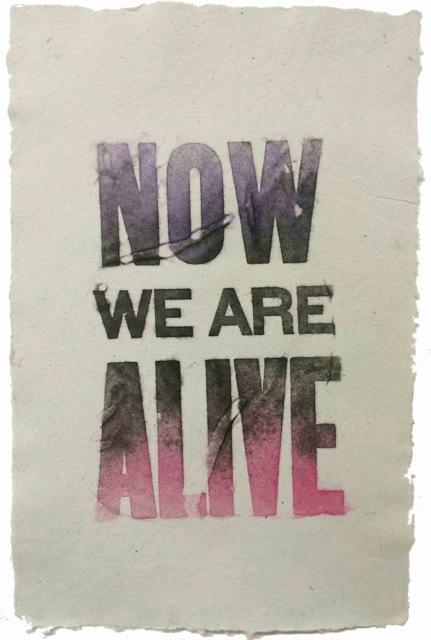This three part piece by Cindy Crabb appears in the Anarcha-Feminisms issue of Perspectives on Anarchist Theory (N.29) available from AK Press.

#Strategy
Feminism … Anarchism … Anarchafeminism, by Cindy Crabb
Anarcha-Feminisms, Introduction
by the Perspectives Collective
This is the introduction to the anarcha-feminisms issue of Perspectives on Anarchist Theory (N.29). The whole issue is available again from AK Press here! Ok, editorial collective. Let’s talk this through. So, what are anarcha-feminisms and why do they need their own Perspectives issue? … Read more
Brooding Over Revolution and Bending Realities: Sci Fi as Social Movement. A Review of Octavia's Brood: Science Fiction Stories from Social Justice Movements (2015, AK Press/IAS) and Sisters of the Revolution: A Feminist Speculative Fiction Anthology (2015, PM Press), by Kim Smith
This book review appears in the current issue of Perspectives on Anarchist Theory (N. 29, on anarcha-feminisms) available here, from AK Press.
Too often I find myself giving into the urgency of organizing, of how this struggle now takes priority over pausing, imagining, reorganizing, reorienting, creating and recreating new worlds, new ways of relating. Of course organizers everywhere are also, everyday, creating many other worlds within this one, but too often it feels as though what takes center-stage in our struggles are the analyses, critiques, and (of course) the too many, too long meetings that stand in for building something different. Spaces for risky, non-utilitarian creativity and inspiration are too often sidelined as inessential. Maybe the appearance of two sci fi books (both from radical presses whose mainstays are political non-fiction) suggests that sci fi is resurfacing as a relevant touchstone for contemporary political movements, signaling perhaps a bit more recognition of creative expression in explicitly political spaces. What exactly is the connection between sci-fi and radical movements and organizing? This question (and some ideas about how to answer it) emerged for me while reading these two humbling anthologies, which I’ll get to in a moment, but first, a little more about these books.
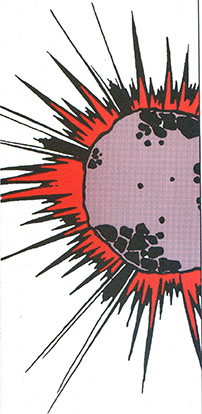
While Octavia’s Brood (2015, AK Press/IAS) and Sisters of the Revolution (2015, PM Press) appear initially as similar offerings from similar presses, their differences are quite profound. While both are compilations of overtly politically-engaged sci fi, the only near-overlap of content is that Sisters of the Revolution includes a brilliant story (one of the strongest in the collection) from the other book’s namesake, Octavia Butler. Beyond this, they both specifically include writers ‘on the margins’ of mainstream science fiction; in this way, many of the stories in each could be included in the other. The likening of one to the other is otherwise quite superficial, however, as the spirits that animate each anthology as a whole are clearly very different. Sisters is an historical compilation of pieces identified as “feminist speculative fiction” by its editors, Ann and Jeff VanderMeer, and seeks to bolster a feminist archive of science fiction, whereas Brood is “visionary fiction,” highly cultural production emerging from and meant to feedback into contemporary social justice struggles. Taken each as collections, they each task science fiction with a different function in contemporary politics, and in doing so fill very different niches, and leave the reader with different orientations towards social change and how it happens.
Perspectives' Anarcha-Feminisms Issue Reviewed, by Michelle Renee Matisons
Michelle Renee Matisons reviews the latest issue of Perspectives on Anarchist Theory, N. 29, on the theme of anarcha-feminisms, in Counterpunch. She says, “Enter Perspectives, which should be read as part of the ongoing effort to expand anarcha-feminist ideas. True to form for the IAS, the issue offers a thoughtful cross-section of history and theory engaged in anarchist and popular movements: education, prisons, labor, health care, ecology, and Indigenous resistance are all included in Perspectives. In and of itself, given the challenging conditions of the academic/movement rift, Perspectives is valuable because it is grounded in nuts and bolts movement work, while also drawing from relevant academic resources as well.”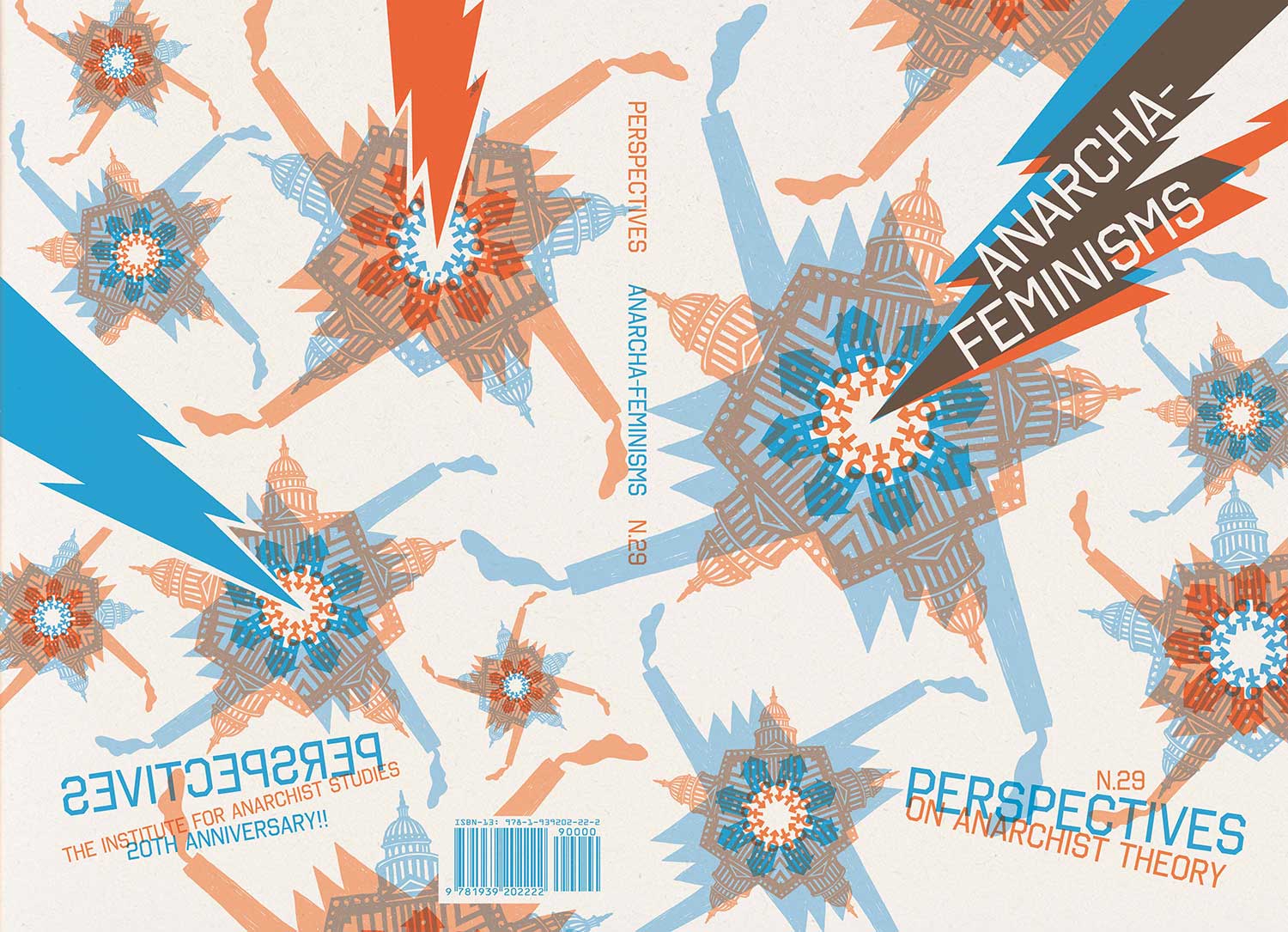
How a Queer Liberation Collective has Stayed Radical for Almost 40 Years, by Toshio Meronek
The first of the four writing projects that the Institute for Anarchist Studies funded in early 2016 has been written and posted in Waging Nonviolence here!
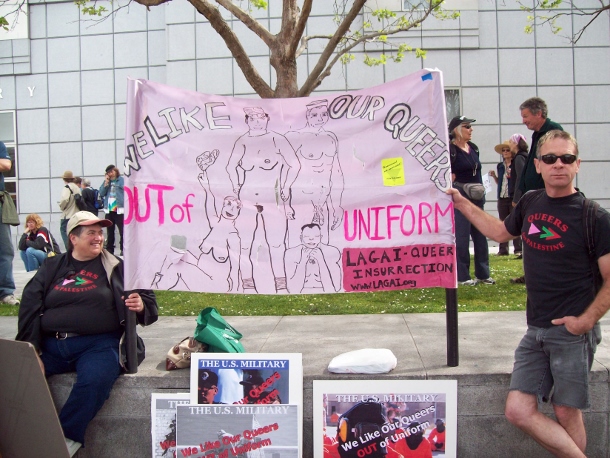
Breaking the Waves: Challenging the Liberal Tendency within Anarchist Feminism, By Romina Akemi and Bree Busk
The Black Rose Anarchist Federation sent a delegation to participate in AFem2014, an international anarchist feminist conference developed by a committee of anarchists organizing in the UK. The goals of AFem2014 were to challenge sexism and other forms of oppression within the anarchist movement and … Read more
Taking Sides on Taking Sides: A Response to Arun Gupta’s Review of Taking Sides: Revolutionary Solidarity and the Poverty of Liberalism (AK Press, 2015), by Michael Staudenmaier
Here is a response to Arun Gupta’s review of Taking Sides. It is written by Michael Staudenmaier, author of Truth and Revolution: A History of the Sojourner Truth Organization, 1969–1986 (AK Press, 2012). Michael wrote an original essay, “Brave Motherfuckers: Reflections on Past Struggles to Abolish White Supremacy” that opens and introduces Taking Sides: Revolutionary Solidarity and the Poverty of Liberalism (AK Press, 2015). This is the type of discussion we were hoping would be generated by Arun Gupta’s review. We encourage you to continue the discussion in the comments section. Perspectives Eds.
Early on in Arun Gupta’s review of Taking Sides, “A War of All Against All,” which appeared here in Perspectives, he writes, “The exact purpose of the book is hard to glean, other than gushing white-hot rage.” Replace “book” with “review” and you have an apt description of his essay. It is clear that Taking Sides made Gupta angry, but it is not at all clear why. Nor does he offer much of an alternative framing for a set of issues he acknowledges are important.
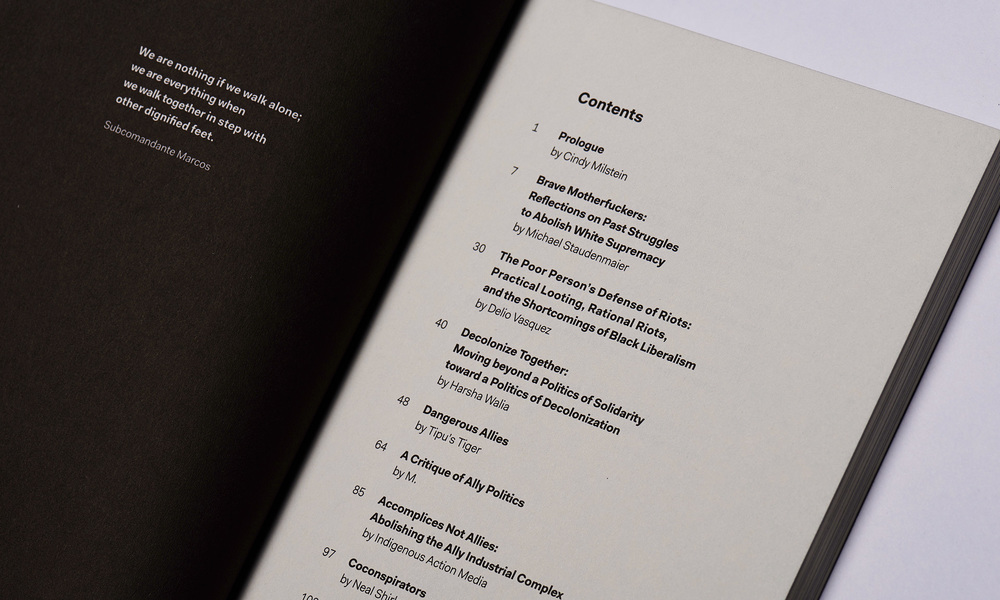
THOUGHTS ON AN ANARCHIST RESPONSE TO HEPATITIS C & HIV, by Alexander McClelland & Zoë Dodd
Editors’ Note:
We regret that, due to an error, an incorrect version of the following piece appears in the print edition of Perspectives, N. 29, on “Anarcha-Feminisms.” Please read and share this version of McClelland and Dodd’s essay, as it demonstrates the language and ideas they intended to represent. We are grateful to the authors for their grace and understanding with this error, and apologize for any confusion this may have created.
“As a woman living with HIV, I am often asked whether there will ever be a cure for AIDS. My answer is that there is already a cure. It lies in the strength of women, families and communities, who support and empower each other to break the silence around HIV/AIDS and take control…” – Beatrice Were, Ugandan AIDS activist ₁
Introduction
In the early days of the HIV epidemic, within a context of massive and systemic state neglect, people who were impacted and affected by HIV came together out of desperation and urgency to help care for and support their own communities, friends, and families. This care and support took many forms. Some helped people die with dignity in non-stigmatizing environments, while others pooled medications in buyers’ clubs and distributed them to one another outside of official healthcare systems of access. Still others established collective community clinics, developed community prevention, support and care organizations, and distributed sterile equipment for injecting drugs, even when it was deemed illegal by the state, or opened supervised consumption sites without official institutional forms of medical or public health approval. Despite these productive examples, which undoubtedly saved many lives, the devastating past of the AIDS crisis is not one to be romanticized. This is not our intention. In looking back at history, we can see that many of these radical actions were inherently anarchist. At the time, people’s intentions may not have been rooted in an anarchist worldview. People did what they needed to do to maintain their own survival despite what higher authorities deemed appropriate. These examples are the active realization of mutual aid, spontaneity, trust, and collaboration—all tenets of anarchism. While anarchism was not central to those organizing in the early days of the AIDS movement, there was an anarchist component to New York City’s AIDS Coalition To Unleash Power (ACT UP), Toronto’s AIDS ACTION NOW! and there have been many smaller anarchist AIDS activist initiatives over the years. We aim to help reconnect the work of these past movements to what is happening today, or what could happen in the future, with liberatory concepts and ideas brought forward through anarchism.
A War of All Against All: A Review of Taking Sides: Revolutionary Solidarity and the Poverty of Liberalism, Cindy Milstein, ed. (Oakland: AK Press, 2015), by Arun Gupta
In the introduction to the book Taking Sides, the editor extends “an invitation to constructively debate the many thorny questions for which none of us have the answers.” In that spirit, and viewing our publication as a forum for vigorous and open debate, Perspectives presents the following review, and has specifically invited the book’s editor to respond in our pages. We also encourage you to join the discussion. We want to host debate and constructive engagement with the important issues that Taking Sides raises in our comments section. You can participate by leaving a reply at the bottom of the review. – Eds.
It was in a dusty lot in a residential corner of Albuquerque, New Mexico where Amalia’s story came spilling out.1 “This is the earliest memory of my mother,” she said, her eyes locked on a row of greens pushing through sandy soil under an open-faced hoop house. “I was less than two years old. She was picking a row of beets.” The last of ten children of Mexican and indigenous heritage in a family of farmworkers, Amalia says her mother was diagnosed with late-stage cancer while pregnant and given a few years to live.
“We were very poor and my mother felt I wouldn’t survive as a baby. My father worked constantly to feed our family and buy shoes for us once a year. My mother was friends with a white woman in a Jehovah’s Witness church who was married but couldn’t have children.” After her mother died the white couple adopted Amalia when she was still a toddler. “Right away they took me to a doctor because I was malnourished.”
“Then the woman who adopted me, a gracious and wonderful woman, was killed two years later in a car accident. So I lost my mom again.” Her adoptive father, Jack, became her primary caretaker. “He encouraged me as a woman to not let things limit me. He encouraged me to embrace my culture. He made relations with indigenous people in the area so he could take me to ceremonies. He really loved me.”

